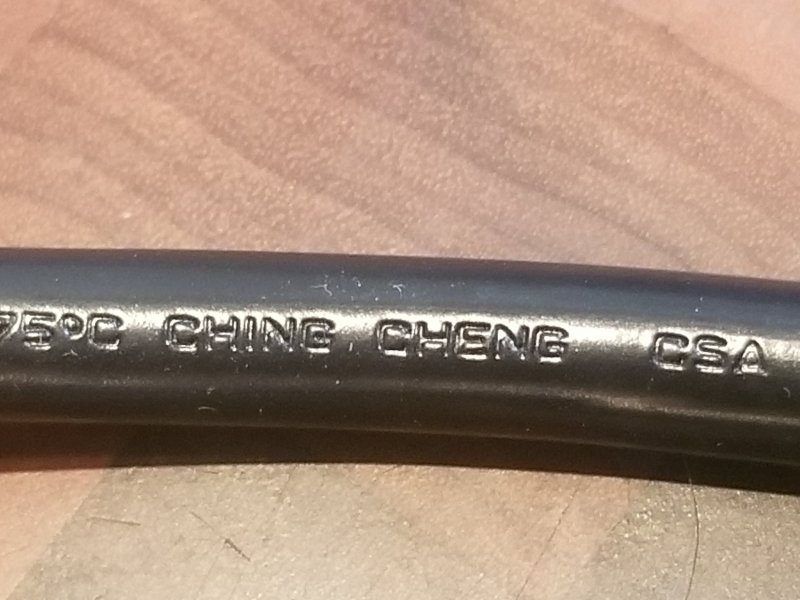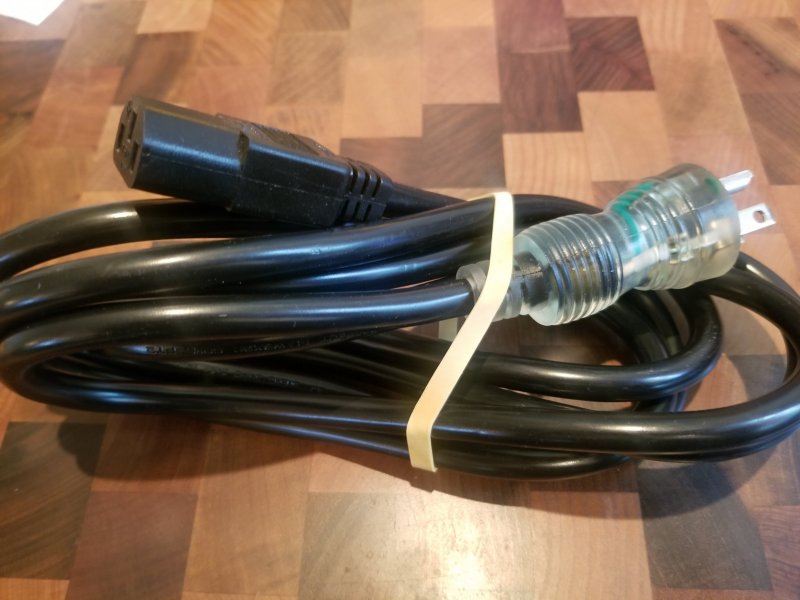Ching Cheng is a very large maker of industrial power cords. The power cords that
came with my Lamm gear are made by CC; thoser are all the same but are not the one I describe below which I use on my phono, linestage and amplifiers.
You can see the current CC product line here:

www.chingcheng.com.tw
As far as I know the person who has tried several is David (
@ddk); you could ask him. Iirc out of the many he tried he winnowed to one - the one he has recommended. I'm believe that particular model is no longer in production.
The lower picture looks identical to mine. I believe what
@PeterA and I have are the same. However the top picture does not have the requisite information. Often a commercial power cord has an identifier embedded on it though small wire may not.
I cannot capture all of the identifier from the CC I use in a photo but here is what it is:
(UL) SJT E162604 12AWGX3C WW-1 75°C CHING CHENG CSA TYPE LL61957 SJT 14AWGX3C 60°C FT2









